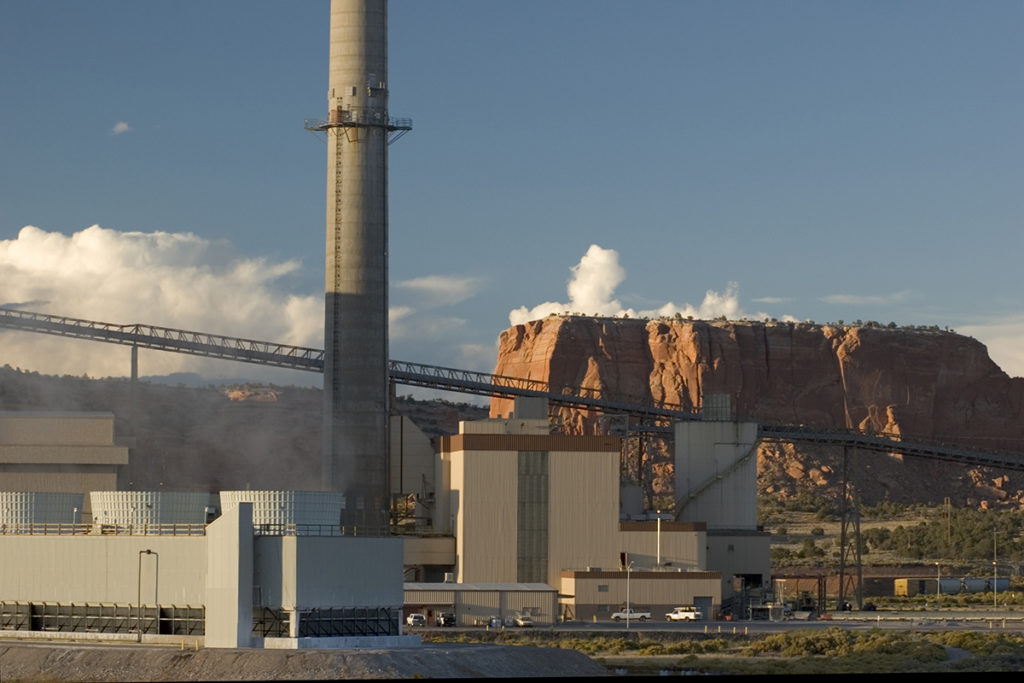
Faced with an abundance of competitively priced renewable energy, increased regulatory requirements from state and federal agencies, and its members’ demand for clean energy, Tri-State Generation and Transmission Association will retire the remaining coal generation that it operates within a decade.
The Westminster, Colorado-based G&T announced plans Thursday to cease operations at Escalante Station, a 253-megawatt facility in Prewitt, New Mexico, by the end of this year.
Tri-State officials also said the G&T would phase out operations at Craig Station, a three-unit, 1,285-MW facility in Colorado’s Moffatt County, by 2030. The shutdown of Unit One by 2025 was previously announced. Ending operations at the Colorado plant will also lead to the closure of the G&T’s Colowyo Mine, which produces coal for the facility, by 2030.
Nearly one-third of the energy consumed by Tri-State’s members comes from renewable resources, and officials anticipate the G&T will meet half its overall demand with renewables by 2024.
“We are leading to be the cleanest, most flexible and most competitive cooperative power supplier for the benefit of our members, the communities they serve and the states we live in,” said Tri-State CEO Duane Highley. “The low costs of renewable energy and operating cost reductions help to counterbalance the cost to retire our coal assets early.”
Retirement of the coal-based plants as well as the mine is expected to impact about 600 jobs.
“As we make this difficult decision, we do so with a deep appreciation for the contributions of our employees who have dedicated their talents and energy to help us deliver on our mission to our members,” said Rick Gordon, Tri-State’s board chairman.
Gordon, an elected director at Limon, Colorado-based Mountain View Electric Association, cited member demand for clean, affordable electricity and public policy decisions as contributing factors for the action. “The fundamental changes in our industry require the retirement of our coal facilities in Colorado and New Mexico,” he said.
Tri-State said it will work with state and local officials in New Mexico, including providing $5 million to help ease the transition for those communities impacted by the Escalante Station closure. The funding will be used for workforce retraining and other economic development needs.
“Our focus is on making these changes with the care and respect our employees and their communities deserve—easing the transition whenever and wherever possible,” said Highley.
The G&T has been diversifying its generation portfolio for the last decade. Measures have included expanding wind and solar generation, adding natural gas combined-cycle generation and increasing its participation in regional imbalance markets. Tri-State completed closure of its coal-based Nucla Station in western Colorado in September, more than three years earlier than projected.
“The low costs of renewable energy and operating cost reductions help to counterbalance the cost to retire our coal assets early,” said Highley. “With our not-for-profit cooperative business model and strong financial position, Tri-State is favorably positioned to successfully transition our resources at the lowest possible cost.”
The G&T plans to unveil additional actions as part of its Responsible Energy Plan next week. Tri-State officials said it represents a transformative strategic blueprint to meet the needs of its 43-member distribution cooperatives and public power districts in Colorado, New Mexico, Wyoming and Nebraska.
Derrill Holly is a staff writer at NRECA.